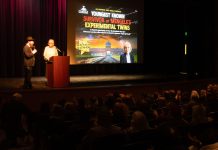So, when does summer begin for you? Some people would say on
Memorial Day; others would say when school is dismissed, still
others on the Solstice (June 21). Whichever you choose, they’re all
past now, so if you’d like to enjoy a lazy summer afternoon with a
book, here are some suggestions to consider.
So, when does summer begin for you? Some people would say on Memorial Day; others would say when school is dismissed, still others on the Solstice (June 21). Whichever you choose, they’re all past now, so if you’d like to enjoy a lazy summer afternoon with a book, here are some suggestions to consider.
• A delightful series of novels written beginning in the 1960s by Harry Kemelman features a young rabbi named David Small who serves a synagogue in the Boston suburb of Barnard’s Crossing.
In “Friday the Rabbi Slept Late” (Fawcett, 1966) a dead woman’s handbag is found in Small’s car, and in “Saturday the Rabbi Went Hungry” he is involved in a controversy when he allows a supposed suicide to be buried in the Jewish cemetery.
Each book shows how Small uses his rabbinical training to carefully study evidence and discover killers the police couldn’t find. What makes the novels enjoyable for people interested in religion, though, is the information about Judaism the author painlessly provides along the way, like why rabbis shouldn’t be considered “clergy” or why few Jews are alcoholics.
• The author of “In But Not Of” (Thomas Nelson, 2003)) worries that “Christians seem to be losing the ability to penetrate the culture” and provides practical advice to those who want to have an impact on secular society. Its author is Hugh Hewitt, a syndicated talk show host, law professor and former official in the Reagan administration.
His advice runs from the mundane, “Fads fade; tattoos don’t,” to the spiritual, “Know everyone between your door and your desk” (because God may have put us on earth to minister to the most unlikely people).
• “Confessions of a Fake Priest” (Church Publishing, 2001) is the autobiography of Caroline Fairless, an Episcopal priest, telling of her journey to ordination and her subsequent attempts to express her priesthood in ministry.
First the title: Fairless refers to herself as suffering from The Impostor Syndrome, a feeling that “you’re not capable of doing what you’re doing. Not old enough, not grown-up enough, not bold enough, not gifted enough …” Although most of us may suffer from this problem occasionally, the author seems to be fixated on it as she recounts a series of debacles in her personal and professional lives.
Much of the book focuses on her struggles to do ministry at a small parish in Half Moon Bay and a much larger one in Roanoke, Va. But interspersed throughout are passages recounting experiences with former lovers, an ex-husband, other family members, parishioners plus things she learned about herself/life while a bartender, premed student, bus driver and recovering alcoholic.
My desire after finishing this book was to know more about the author and her struggles. The fragmentary, chaotic presentation of her narrative challenged me to make sense of the rushing flow of ideas and events. Her message may have been clearer if she had tried to present the story according to the chronological outline which she furnished on page two and then proceeded to abandon.














